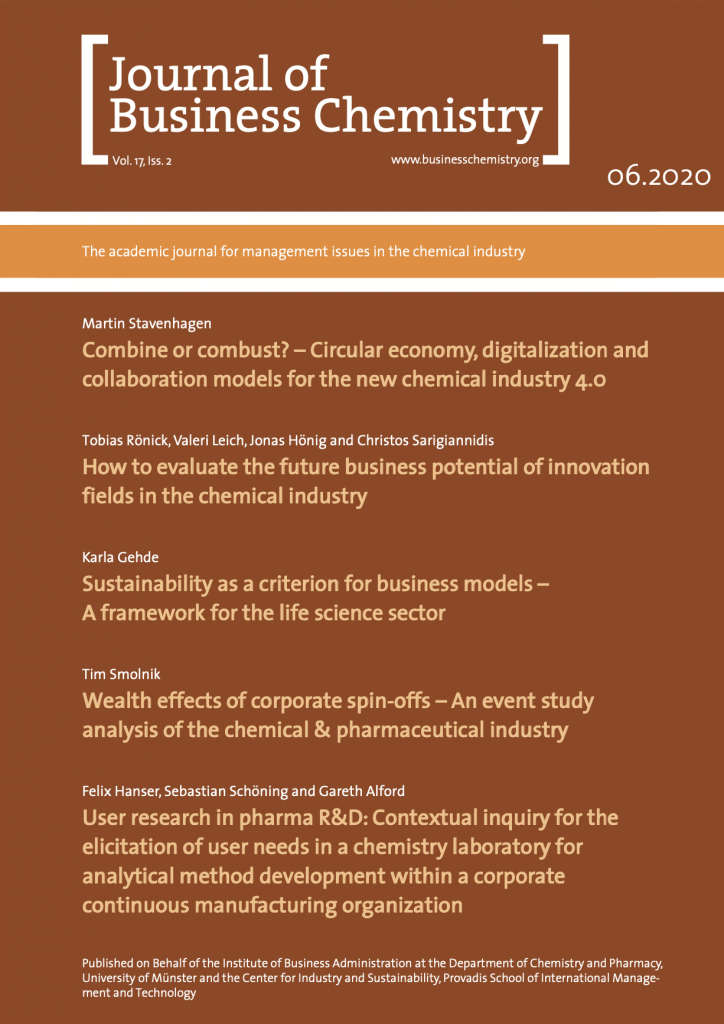Journal of Business Chemistry June 2020
While identifying relevant trends for the chemical industry at the start of the last issue, we were not expecting that in the following months the world would become overwhelmed by a completely new topic. Now just four months later, one cannot imagine devising a future strategy for any firm without taking the effects of the […]
Abstract The chemical-pharmaceutical industry, like other industrial sectors, is facing transformative changes exemplified by ‘Industry 4.0’ – including digitalization, circular economy approaches, and other innovations impacting its business model. These changes also affect the relationship with its customers, and the required skills and training needs for its employees. Based on several interviews with experts conducted […]
Abstract Decisions about the further development or termination of innovation fields (IF) have a high relevance for companies. However, due to a lack of information in the front end of innovation (FEI) as well as missing evaluation methods and criteria, selection decisions are often based on personal “gut feeling”. By identifying 24 indicators, which have […]
Abstract The research discourse on sustainability and on business models can be described as diverse in approaches and understanding of subject areas. The value-oriented business model and the twenty criteria of the German Sustainability Code represent a sample which is used for this research to examine and compare the sustainability of business models in practice. […]
Abstract The present article studies wealth effects of global spin-off announcements of the chemical and pharmaceutical industry that were announced between January 2001 and October 2019. The cumulative average abnormal return over the 3-day event window is 3.91%. This result is significant at the 0.1%-level. Moreover, varying the event-window and utilizing a second statistical approach […]
Abstract Laboratories in the pharmaceutical industry see an ongoing transition towards continuous manufacturing by means of tighter integration of novel and existing technologies and, thus, the introduction of new work methodologies. However, technological studies focusing novel manufacturing methodologies usually do not address social aspects, while social sciences studies on the other hand rarely address scientific […]
